Moving forward from its canceled season, the Grinnell College football team will need to increase the number of players on the roster in order to stop a repeat of this year’s situation, where injuries left the team so small that it would have been unsafe to continue playing. However, it remains unclear how the team, which has not had a winning season since 2010, will attract more players.
Dan Jaques, now a fourth-year at the University of Richmond in Virginia, has experienced firsthand the effects of injuries resulting from playing on too small a team.
Jaques played football for Grinnell during the fall of 2016, in his first and only year at Grinnell. In that season, he suffered a severed pancreas, a major internal injury with an extended recovery period. Today, he plays on Richmond’s team, which competes on the Division I Football Subdivision Championship (FCS) level.
“Football’s culture demands a lot out of you, and it demands a lot out of your body,” Jaques said. “Football players are always being pressured to gain weight, lose weight, maintain muscle, come back from injury, rehab.”
This fall, the team started the semester with 38 players—a small roster, but still 12 more than the NCAA-mandated minimum. From the beginning, there were problems; multiple team members entered with injuries, and the number of players who couldn’t play continued to grow. Just a few weeks in, seven team members had season-ending injuries, and several more had less severe injuries requiring evaluation on a game-by-game basis. The team’s first game of the season was against Lawrence University. They lost 28-0.
The second and third games followed, a 44-0 loss to Lake Forest College and a 42-3 loss against Macalester, with new injuries dropping the roster to 28. Facing a game against St. Norbert, a Midwest Conference powerhouse with 125 players—the NCAA maximum—and a full waiting list, three fourth-year players led a vote on whether the Pioneers should continue the season. The team voted, for the first time in Grinnell history, to cancel the team’s participation in the Midwest Conference for the remainder of this semester.
The shrinking size of Grinnell’s team as injuries accumulate in each season results in more game time for each individual player, creating more risk for new injuries. According to Max Hill ’20, one of the players who led the team vote on canceling the season, “This season was different, because from the jump, day one, people were out.”
“With such a small roster, the starters are typically taking every single rep—60 to 70 plays a game,” said David Taylor ’20, another player involved in leading the cancellation vote.
Reed Winter, a fourth-year at the University of Vermont, played football at Grinnell before transferring. Winter said that at Grinnell, he played both offense and defense, a practice that few college programs would risk doing anymore. Currently, Grinnell football players do not play both ways. “That’s a safety precaution,” said Rick Johnson ’20, a third player who helped orchestrate the team cancellation vote. “It’s been proven that if you play both ways, you’re more likely to get injured.”
Asked whether he thought the NCAA’s minimum football squad size—22 members, if no one plays both ways—was adequate, Winter said, “It’s definitely not safe. … You at least need high 40s, 50s to be consistent, have players develop properly.” Grinnell’s team membership has hovered around the high 30s for the past several years.
When Jaques first heard about the season cancellation, he said, he felt sad for the fourth-year students on the team, and then he began to think more about the circumstances behind the vote. “I think that they made the right decision, not only in regards to their safety but to send a message, to say that they might need some more support from the school,” he said.
Both Jaques and Reed frequently said that they felt the team lacked support from the College when they attended Grinnell.
Jaques said, “Obviously it’s a very competitive school, so it’s tough for the school to let players in who don’t meet that standard. … If you lower the standards academically, a little bit, you could definitely get so many kids.” He continued, “When you’re a football player, or any type of athlete, maybe that makes up for some kind of lack academically. You can still be a well-rounded candidate for admission, even if you’re not entirely what the school’s looking for academically.”
Winter said, “It’s frustrating, as a player—you definitely want more people to come in, and support and get excited, but I absolutely understand the administration being like, ‘we don’t want to lower our academic caliber for football students.’”
So what would be an effective way to increase the team size? Winter said, “More coaches, help to get bigger recruiting classes to help bring in more talent, because no matter how good the kids are, injuries are going to happen, and you can’t support a team with 30-some-odd kids. It’s just not feasible.”
The season cancellation also raises questions about the likelihood of the recruiting class of 2024 deciding to come to Grinnell. “Our current plan is to have them continue working with our prospective student-athletes who play football, to give them knowledge of the situation but also to continue to try and make alignment with their interest in Grinnell College,” said Andy Hamilton, director of athletics at Grinnell.
It is currently unclear what the season’s early end could mean for the future of the football program at Grinnell. Equally unknown is what might happen if underclassmen with a goal of being student athletes might choose to leave the team or transfer to other schools (The S&B reached out to several current first-year members of the College football team; none responded to multiple requests for comment).
Winter said, “Grinnell’s never going to be a football school, it’s never going to be amazing, but [the College] needs to decide, either we’re going to support this team, properly, or we’re not going to have it. It’s not realistic for the path that it’s continued on to be sustainable.”


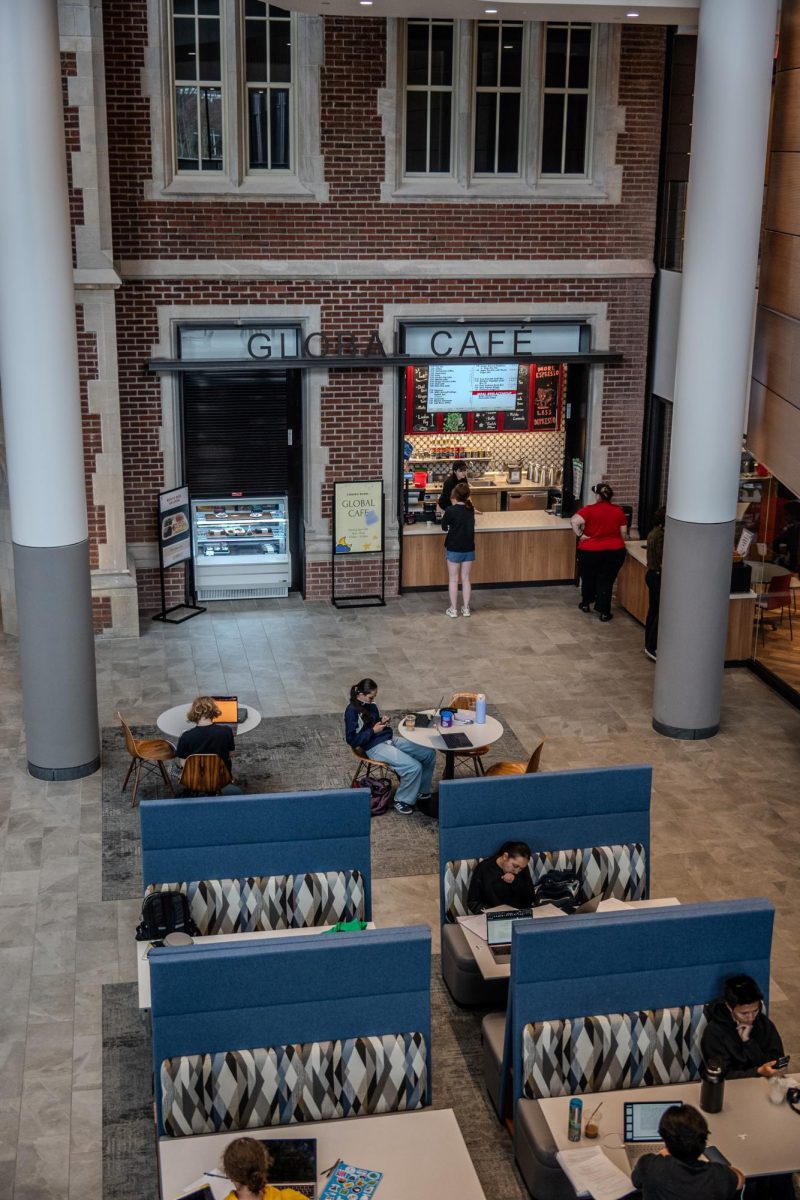
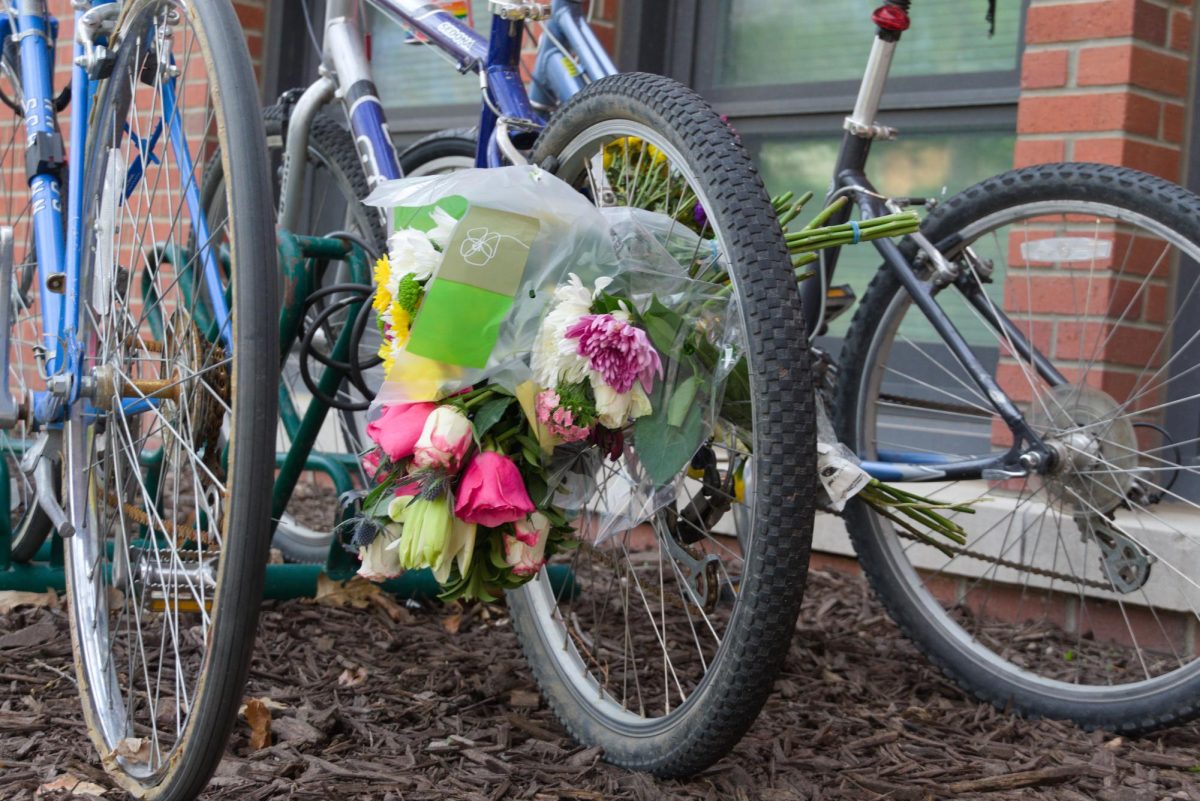


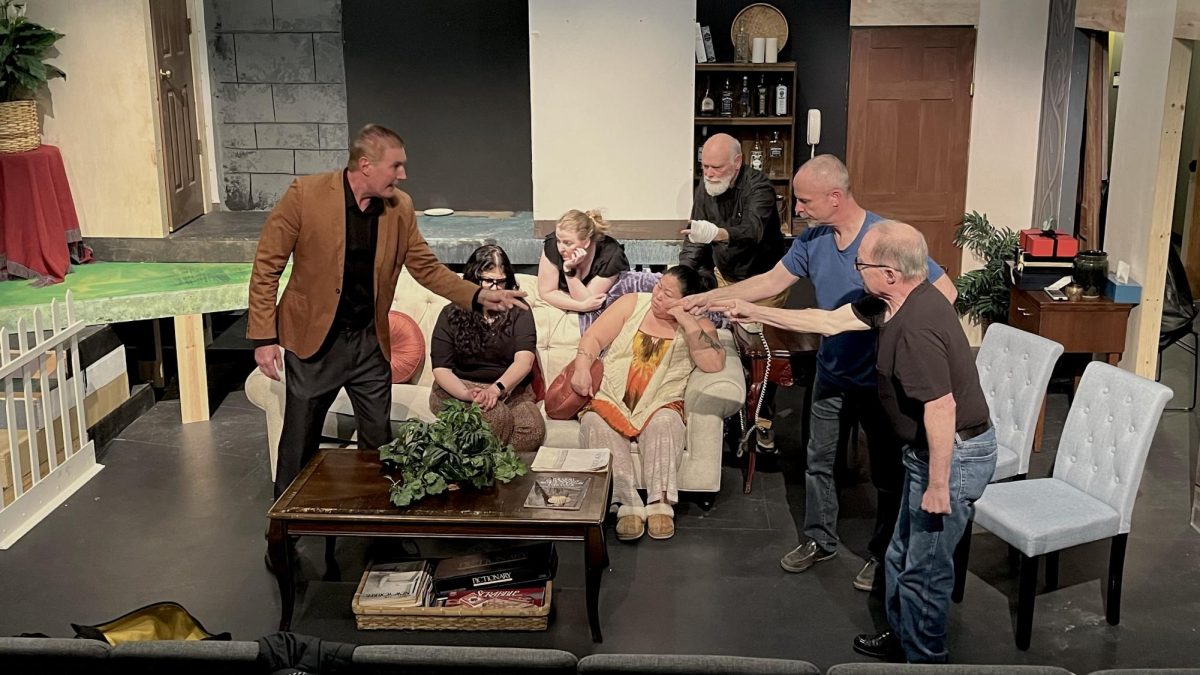







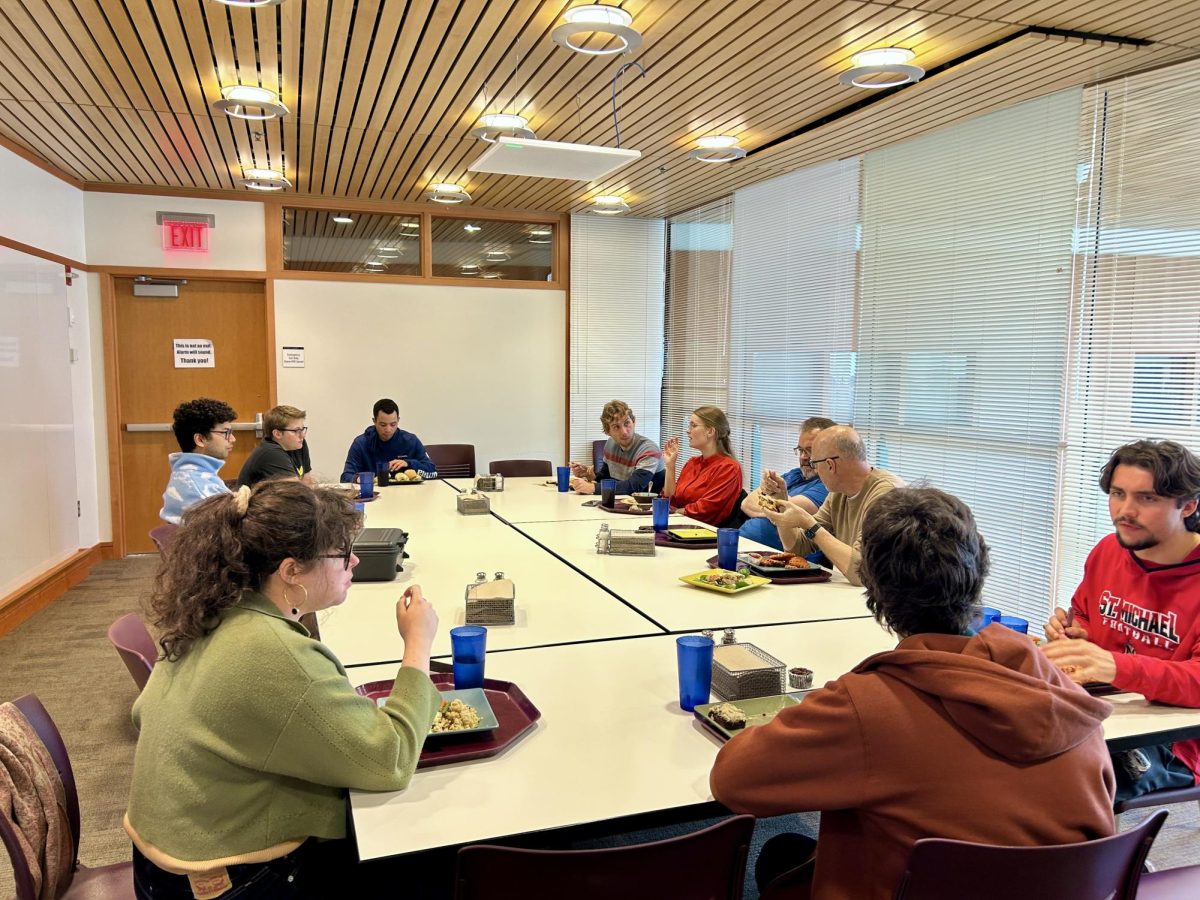



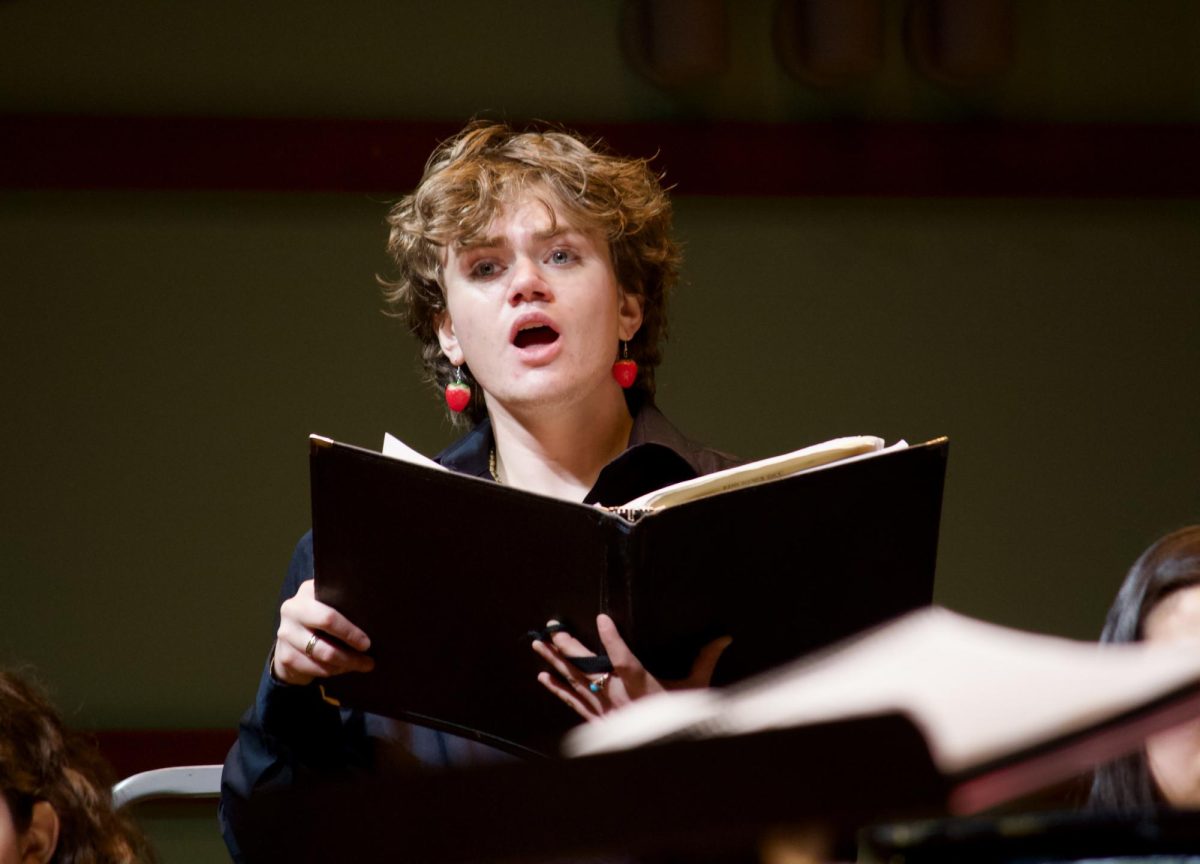


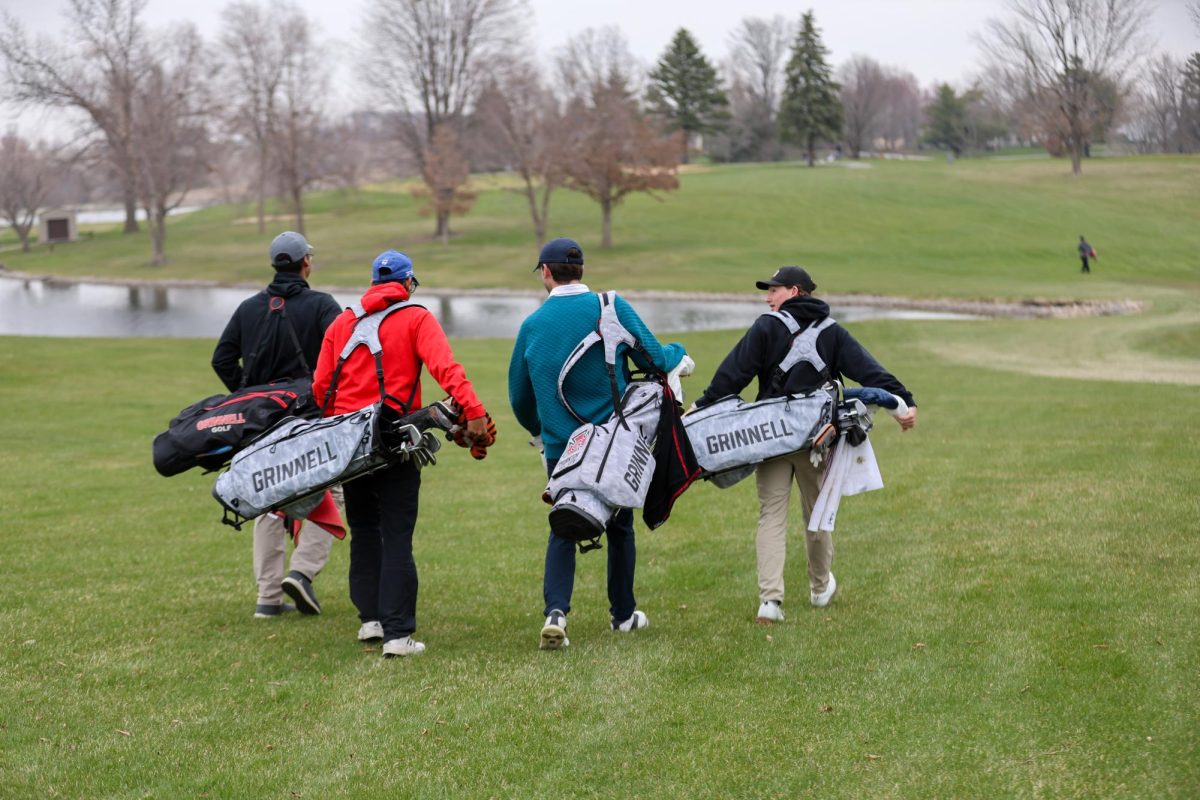
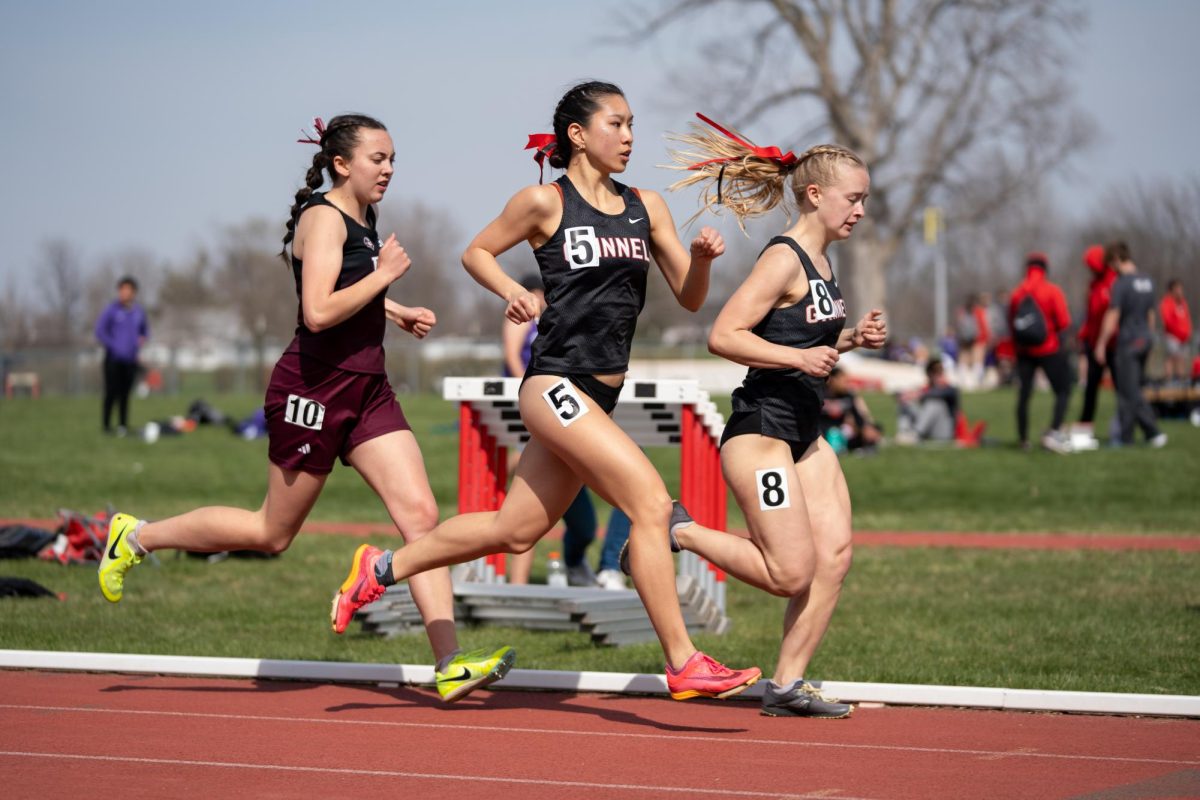




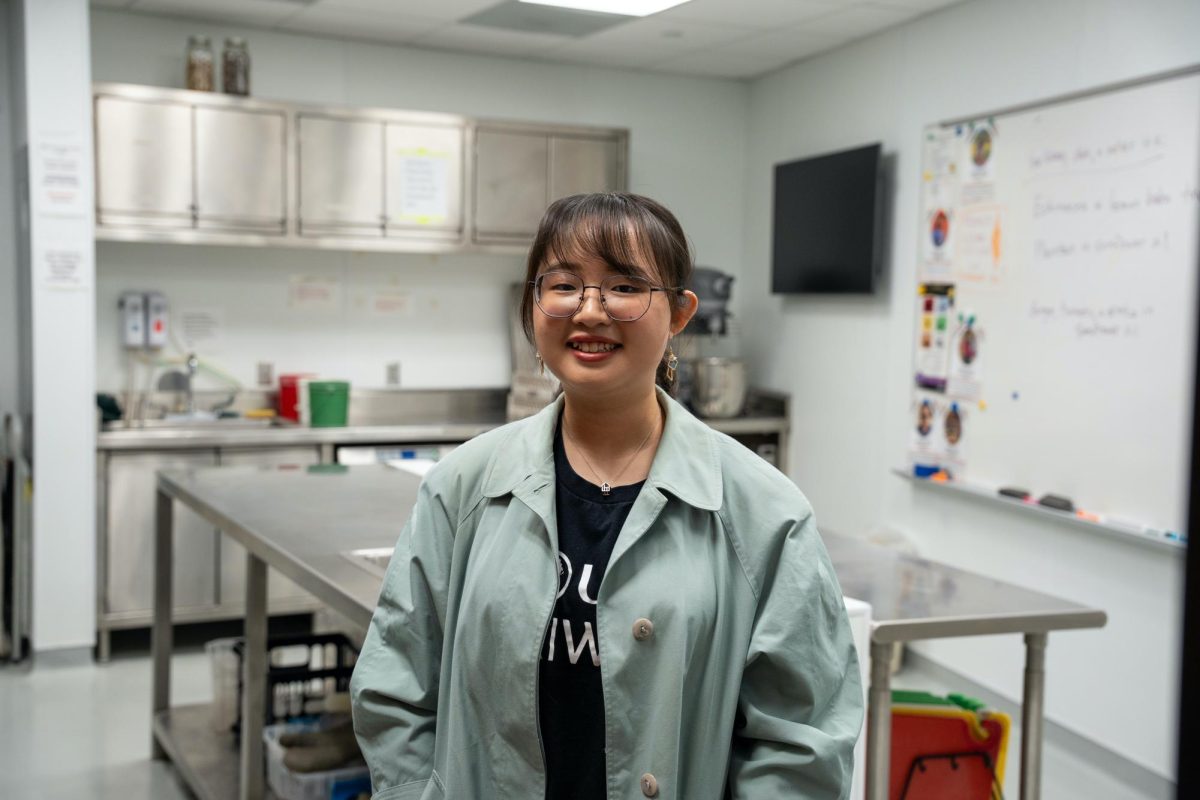
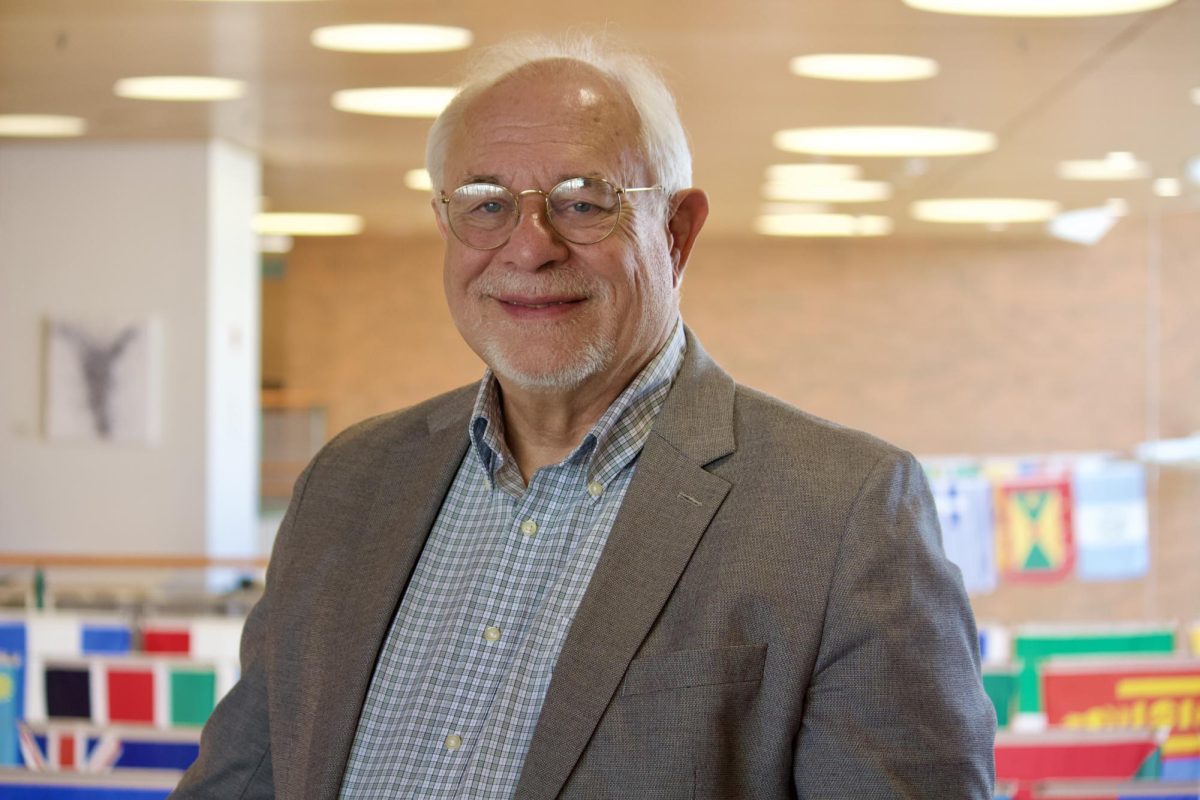












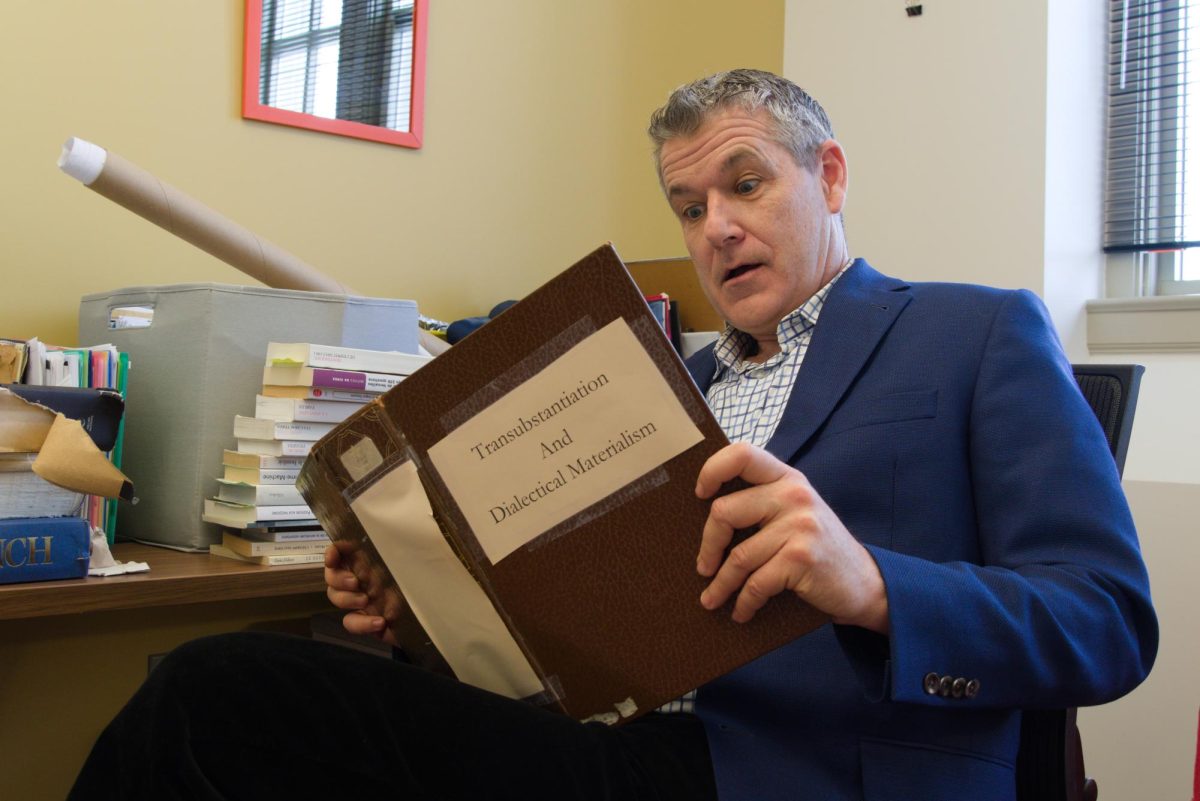









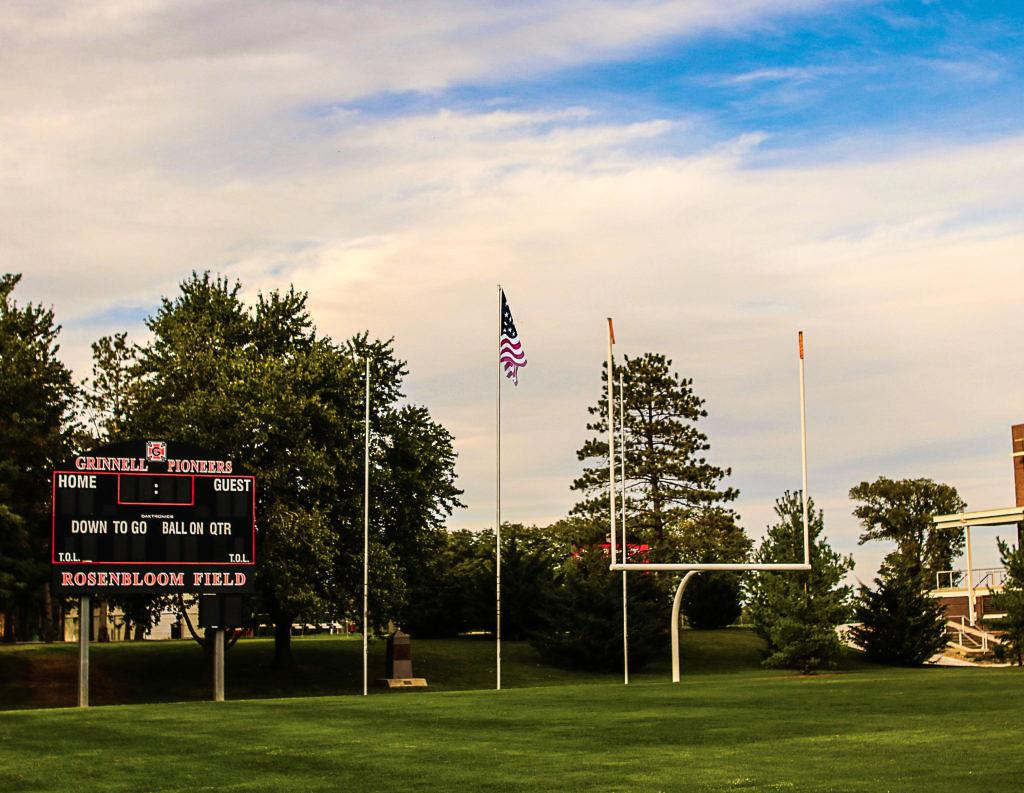






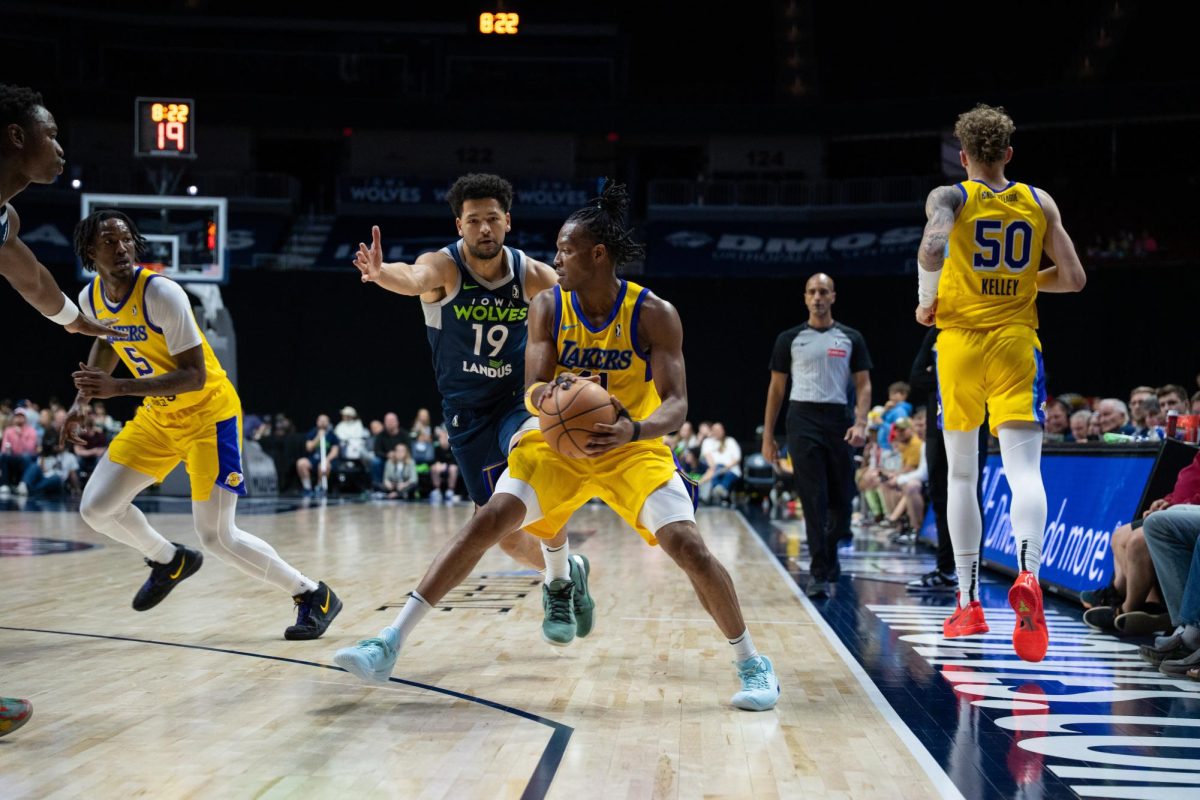
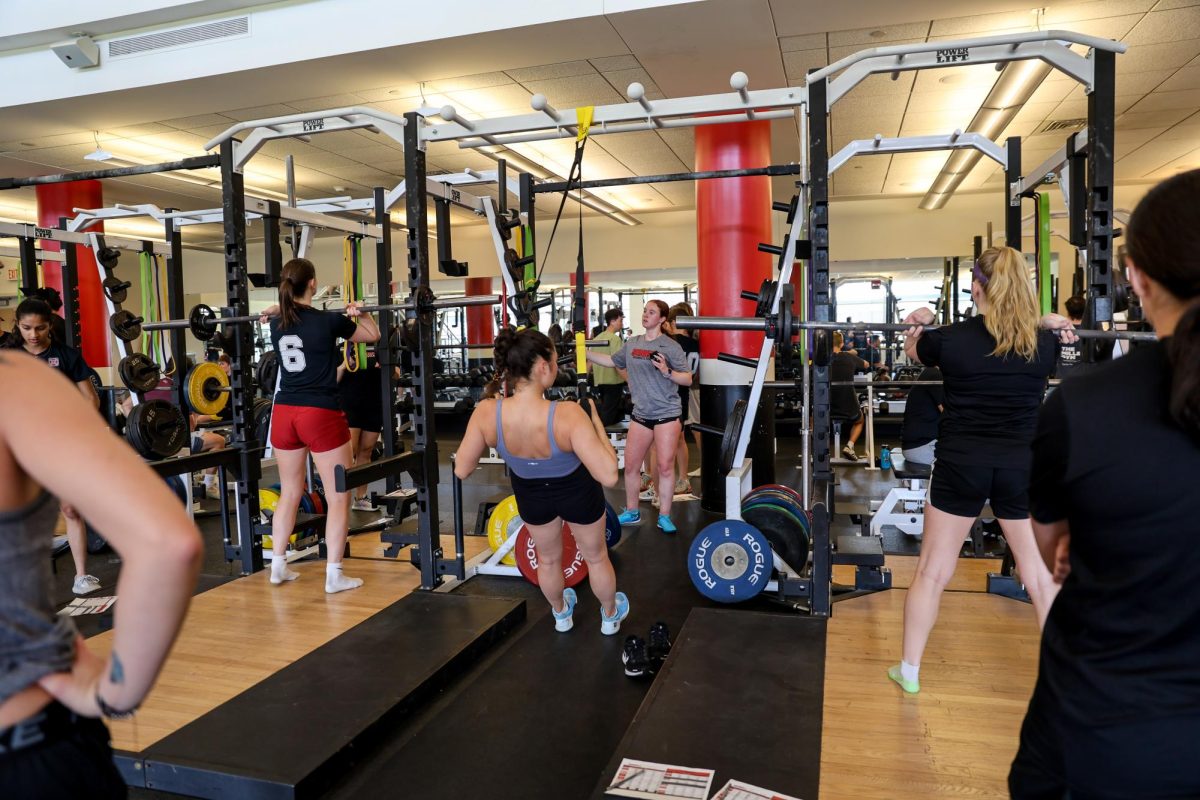

Marty Hunsucker ('90) • Nov 6, 2019 at 3:59 pm
As someone who played football for 4 years and helped coach football for 3 additional years at Grinnell, I feel safe making this statement. Much, much more neurological damage has taken place at Grinnell College due to smoking pot than has ever occurred on Rosenbloom Field. (By the way, that’s the name of the football stadium for those of you who have never been to a game).
Alan Goldfarb (‘52) • Oct 24, 2019 at 11:07 pm
As a former Grinnell football player, I hope that varsity football will not be continued. It’s not fun any more when the inevitability injuries mount, and neurological damage may not become wholly evident for many years
Anyone for “touch” football? Why not?